Core Mathematics
Head of Department: Mr M D Robson
Exam board: OCR
Qualification name: Core Mathematics (Level 3 Certificate)
Qualification codes: H869
What you will study
Core Maths is split into two compulsory modules:
- Introduction to Quanittative Reasoning: Learners consolidate and extend the mathematics they have learned at GCSE – the emphasis is on them developing transferable skills by using problem solving cycles in modelling, statistics and financial mathematics.
- Statistical Problem Solving: Learners use spreadsheets and the statistical problem solving cycle to analyse authentic statistical problems arising from a variety of work, life and study related contexts.
Topics include statistics (normal & chi-squared distributions, correlation & hypothesis testing); appreciation & depreciation; foreign exchange, costing & financial problem solving; exponential & logarithmic scales; probability & risk.
Both papers make use of pre-release data within the examination.
How you will be assessed
Paper 1: Introduction to Quantitative Reasoning
A 2-hour written paper (worth 72 marks)
Paper 2: Statistical Problem Solving
A 2-hour written paper (worth 60 marks)
Reading View. Press Alt+Shift+A for accessibility help.
Note that Core Maths is a one-year course, normally studied and examined during the Lower Sixth Year.
Why choose Core Mathematics?
Studying Maths beyond GCSE level is very valuable: If you don’t plan to study A-level Maths then you should consider Core Maths. Advanced maths qualifications are highly regarded by employers and universities. They are often required or recommended, and may lead to reduced offers for entry to university and degree apprenticeship programmes, even for subjects that don’t have a large amount of mathematical content. Examples of universities that provide reduced offers for these qualifications include Bath, Sheffield and York. Core Maths is a Level 3 qualification and attracts UCAS points in the same way as an AS level. As the course is usually taken in the Lower Sixth student will have an actual grade to include on their UCAS application.
Maintaining a good level of numeracy is important as you may be asked to take a numeracy test for a university course or a job. Furthermore, many other A-level subjects include mathematical content (often beyond GCSE level): Maths skills are included in the assessment of around a third of all non-maths A levels. For example, 10% of the marks in A level Psychology assess maths skills at Higher Tier GCSE level. A-level Biology, Business Studies & Economics, Geography, Sports Science, Chemistry, Physics, Computer Science all have a significant amount of mathematical content. It’s likely that if you study Core Maths alongside subjects like these you’ll achieve better results in them.
Course requirements
Grade 5 in GCSE/IGCSE Mathematics is the usual minimum standard required to begin Core Maths.
Related subjects at Sixth Form
Core Mathematics complements the study of many A Level subjects including Psychology, Economics, Biology, Chemistry, Physics, Business Studies, Geography and Computer Science.
Where could this lead?
Studying Mathematics encourages an ability to think logically and students learn to communicate complex ideas effectively. Universities and employers are impressed with candidates who choose to study mathematics beyond GCSE. Success in Mathematics requires an ability to master complex and difficult problems, a personal characteristic that gives mathematicians an advantage when learning new skills. Employers know that graduates who have studied Mathematics have well developed problem-solving skills and have the ability to use their own initiative. More information is available at mathscareers.org.uk

